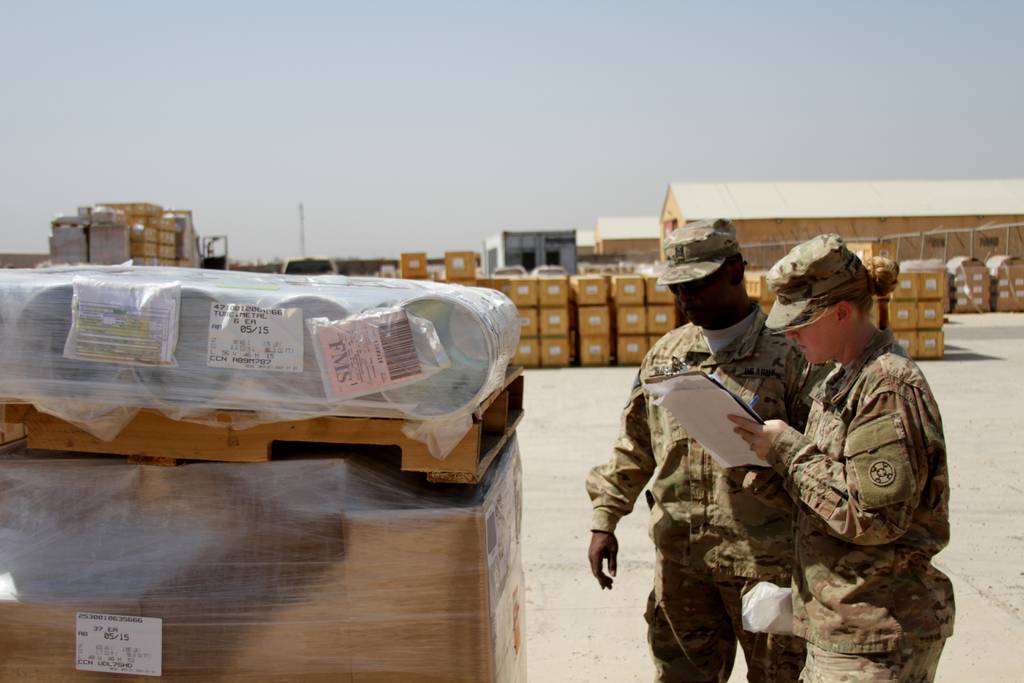
WASHINGTON — The White House on Thursday updated the U.S. policy on conventional weapons transfers to other countries, adding a broader threshold to deny deals on human rights grounds even as the Biden administration seeks to bolster the competitiveness of the U.S. defense industry abroad.
Under the new policy, the State Department will not authorize an arms transfer if it assesses it is “more likely than not” the recipient country will use the weapons to commit or facilitate the commission of actions such as genocide, crimes against humanity, breaches of the Geneva Conventions or serious violations of international law. The previous arms transfer policy had a more lax threshold, requiring the State Department to have “actual knowledge” of genocide or crimes against humanity to deny an arms transfer.
The updated guidance also states that the U.S. “will exercise restraint in international arms transfers that may be destabilizing or threaten international peace and security.”
Jeff Abramson, a senior fellow at the Arms Control Association, told Defense News the policy update makes “clear that this administration wants to put a focus on human rights and this new policy has language for human rights promoters to applaud.”
“The proof will be in the actual implementation as it also contains language that will be usable for those who are less concerned about human rights,” he added “That’s always a balancing act in these conventional arms policies.”
The new guidance states that “in an increasingly competitive market, the United States government will promote transfers when they are in the United States national interest, in line with the consideration of this policy, and consistent with defense trade advocacy procedures.”
The policy says the government should take into account “the transfer’s contribution to United States innovation and technological advancement that helps improve United States and partner responses to security threats, as well as its effect on the United States defense industrial base.”
A senior State Department official told reporters on a Wednesday call previewing the new policy the Biden administration plans to “focus on four areas in particular where we haven’t seen much progress in ensuring our competitiveness on a global stage.”
The official said those areas include “competitive financing (making sure that our products are affordable to our partners)” and “exportability (building exportability into the design phase).” The third area is a non-program of record, which refers to weapons systems a U.S. defense company no longer makes, “to make sure that even if the United States military is not producing a certain system that we can be able to identify the needs of our partners and work with industry to be able to act accordingly.” And the final area is “our technology, disclosure and foreign release system deciding what the appropriate … risk tolerance is for technology and security.”
The White House’s new policy notes for the first time the U.S. government can stop an arms transfer before it’s completed, even after the State Department has approved it, “if it determines that a transfer is no longer in accordance with United States foreign policy objectives, national security goals or legal obligations.” The State Department can also cease support for weapons systems that have already been transferred.
Additionally, the updated guidance places significant emphasis on strong security sector governance.
“The United States recognizes that good security sector governance, including the transparent, accountable, and legitimate management and oversight of security policy and practice, is integral to the responsible possession and use of United States-origin defense materiel,” the policy states.
Bryant Harris is the Congress reporter for Defense News. He has covered U.S. foreign policy, national security, international affairs and politics in Washington since 2014. He has also written for Foreign Policy, Al-Monitor, Al Jazeera English and IPS News.
- SEO Powered Content & PR Distribution. Get Amplified Today.
- Platoblockchain. Web3 Metaverse Intelligence. Knowledge Amplified. Access Here.
- Source: https://www.defensenews.com/pentagon/2023/02/23/biden-arms-deal-policy-seeks-to-balance-human-rights-and-competition/



